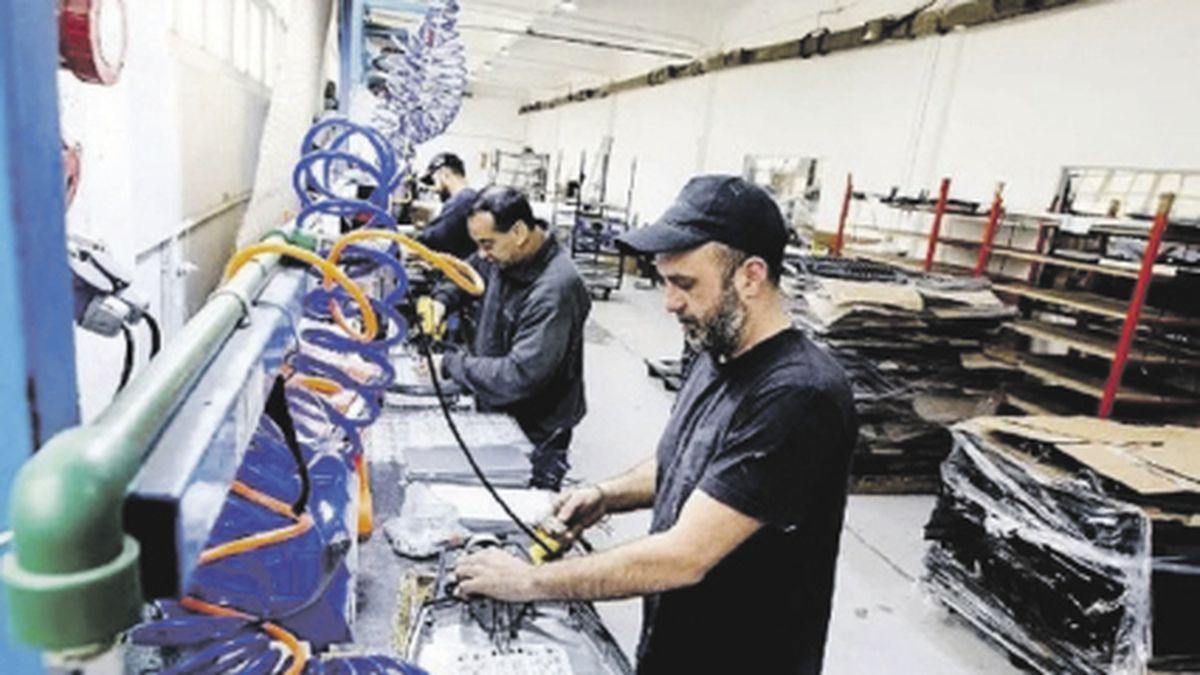The Minister of Economy and candidate for president of Unión por la Patria, Sergio Massa, announced that Starting next Monday, a “Cash income incentive with 25% Settlement” will apply for SMEs. He did so in the Argentine Confederation of Medium Enterprises (CAME), where he assured that the objective is to guarantee a greater volume and flow of income in dollars.
The measure has the same spirit as the implementation of the “Vaca Muerta Dollar”, with a limit until October 20, and the extension of the “Soja Dollar” in its fourth edition, extended until October 25: enrich the sources of foreign currency to the purposes of increasing the accumulation of dollars of the Central Bank (BCRA). The objective is to transfer 75% of the settlement to the official dollar, and the remainder to the financial market.
According to data from the Ministry of Industry and Productive Development, around 8,540 SMEs could benefit from this implementation, considering the figure as the total number of exporters during 2022. However, the SME conglomerate represents more than that: it encompasses more than 65% of employment and integrates more than 530 thousand companies throughout Argentina.
Entrepreneurs consulted by Ambit They celebrate the announced settlement mechanism, although they warn that the exchange gap, which yesterday reached 140%, continues to outweigh some type of incentive. Guillermina Esmoris, Founder and CEO of Yumba, believes that the measure, for her sector, “is symbolic” since the size of companies she frequents, as a member of the Chamber of Manufacturers of Musical Instruments and Accessories (CAFIM), have annual turnover that fluctuates between 20 thousand and 350 thousand dollars. For the businesswoman, “charging 75% to the official dollar with the gap that exists is a small patch in the face of a situation that has to do with stabilizing the economy and lifting the exchange rate.”
In turn, an SME businessman linked to the energy sector celebrates Massa’s initiative in voiceover, but admits that in the electoral context marked by uncertainty “if possible, one holds on to liquidating until it ends up being devalued, either in sections, or violently if Milei wins.” Marcelo Fernandez, president of CGERA, counterargues: “The SME needs the money, they cannot speculate, they do not have an outside account. You have to liquidate.”
Other businessmen, such as Jorge Karagozlu, owner of a textile SME, understands that “it is convenient to export because one end (official dollar) is compensated against the other (CCL) and the average is around $500”, but he understands that the lack of raw materials due to the complications for matter they stop him. He raises the same thing regarding the initiative Mauro Gonzalez, head of the General SME Confederation, but highlights that Argentina is going through a productive matrix with a main flaw: “it is currently dependent on imports. “The more it is produced, the more it is imported.”
During the event organized by CAME, the Minister recognized the deficiencies that the productive network is experiencing. “The first problem that Argentina has to solve is the outflow of dollars, which is greater than the inflow,” he explained. He highlighted the drought as that phenomenon that contributed to the trade balance deficit, since the loss of 21 billion dollars it implied is equivalent to 23% of annual exports. The pressing context gave rise to the implementation of the SIRAS, the deadlines “and all the issues that have to do with not stopping production, but guaranteeing the inflow and outflow of dollars.”
On this point, he shared an interesting memory that links him to Patricia Bullrich’s eventual Minister of Economy, Carlos Melconian, with whom he shared breakfast and, according to Massa, asked him to “please take care of the SIRAs,” contrary to a policy of exchange liberalization and opening of imports. However, he promised that in 2024, without an energy deficit of more than 7 billion dollars or a drought, import permits will be eliminated.
Finally, Massa also highlighted the 40% informal economy that discourages growth and the problem of the tax structure, which maintains “the bulk of tax benefits for those who generate less than 30% of employment in Argentina.”
Source: Ambito




